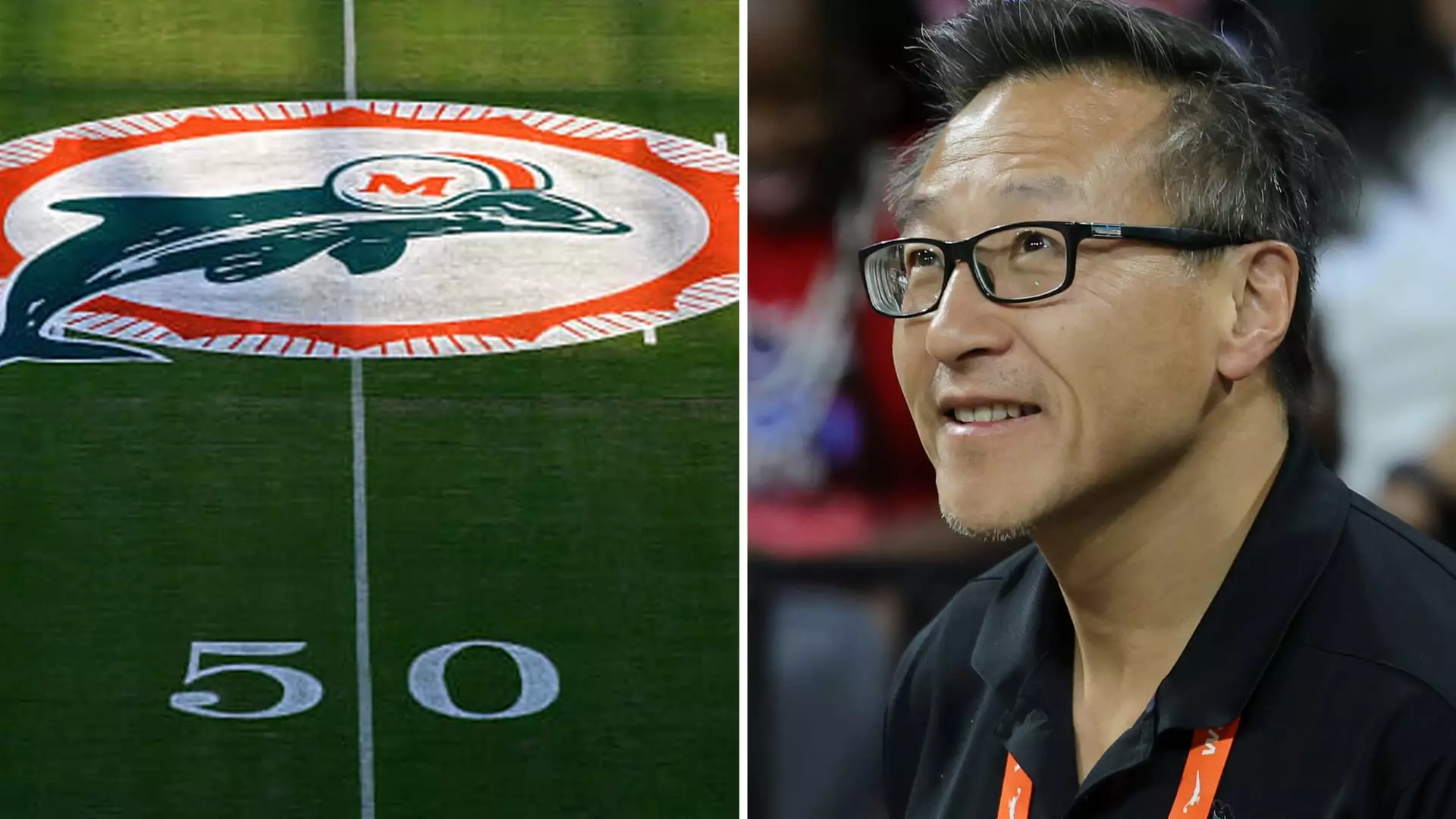The landscape of professional sports is rapidly changing, with ownership structures diversifying and strategies evolving. One of the most notable developments in this sphere is the recent negotiations involving the Miami Dolphins, a prominent NFL franchise. The potential minority stake sale to private equity firm Ares Management and billionaire Joe Tsai marks a significant moment, highlighting a broader trend of private investment entering professional sports. In an era where profits are closely tied to diversified ownership, this shift raises important questions about the future of team ownership and the dynamics of the sports industry.
Sports owners are increasingly looking to maximize their assets and revenue streams by managing multiple teams and controlling associated venues. The case of the Miami Dolphins clearly illustrates this approach. In addition to the team, the reported deal involves Hard Rock Stadium, which hosts various events, the Miami Grand Prix Formula 1 race, and approximately half of the Miami Open tennis tournament. Such a comprehensive package elevates the valuation of the assets involved to a staggering $8.1 billion. Conversely, a controlling stake in the same assets would eclipse $10 billion, underscoring the financial significance of these negotiations.
For the NFL, the introduction of private equity investment represents a significant departure from its historical norms. Prior to the approval of new financing rules in August, the league had been reluctant to embrace this financial model. However, as team valuations have climbed, the need to attract diverse funding has become more pressing. The Dolphins’ negotiations with Ares Management could be transformational, representing the NFL’s first foray into private equity partnerships, effectively opening the door for other franchises to follow suit.
Despite the excitement surrounding these transactions, the Dolphins’ assets are currently valued at $7.1 billion, a figure that does not account for the stadium. This prompts a discussion about the methodologies used to appraise sports franchises. Valuation techniques in this industry have continued to evolve, making previous benchmarks somewhat obsolete in the wake of skyrocketing franchise values. Businessman Stephen Ross purchased the Dolphins for $1.1 billion back in 2009, and his decision to sell a minority stake reflects a strategic pivot aimed at accumulating greater wealth and influence through his South Florida real estate ventures.
Stephen Ross’s ambitions are multifaceted. As the CEO of Related Companies, his investments extend beyond merely football. Owning and operating the Dolphins alongside their stadium allows him to capitalize on various revenue-generating events, from concerts to tournaments. The Miami Dolphins reported a remarkable $673 million in revenue in 2023, illustrating the team’s financial prowess and potential. It is a telling sign that in the high-stakes world of sports, controlling multiple assets can yield significant returns.
The dynamics of the investment landscape in professional sports don’t only hinge on immediate financial benefits. They also reflect a cultural shift in how sports teams operate and the types of individuals who are increasingly becoming involved. Joe Tsai, who currently owns the Brooklyn Nets and several other sports teams, exemplifies this new breed of sports financier. His interests in multiple franchises across different sports demonstrate a shift towards an interconnected sports ecosystem, where profitability is derived not just from individual teams, but from a larger portfolio concept.
The potential sale involving the Dolphins is more than just a financial transaction; it embodies the future of sports ownership and its potential ramifications on league structures. As teams increasingly rely on diverse revenue streams, the implications of private equity involvement could reshape the dynamics of competition and collaboration among franchises. Indeed, the NFL’s decision to allow limited private equity investments reflects a recognition of current market realities and the need to adapt to changing environments.
As the effects of these negotiations unfold, stakeholders from fans to franchises must evaluate the implications of such changes on the traditional values of sports ownership. The Miami Dolphins’ strategic moves not only demonstrate a recalibration in ownership structures but also signify a new era where sports franchises are viewed as valuable assets in a broader investment strategy. In an age where sports investments are becoming increasingly complex, how these trends develop will undoubtedly shape the future of professional sports in America.


Leave a Reply